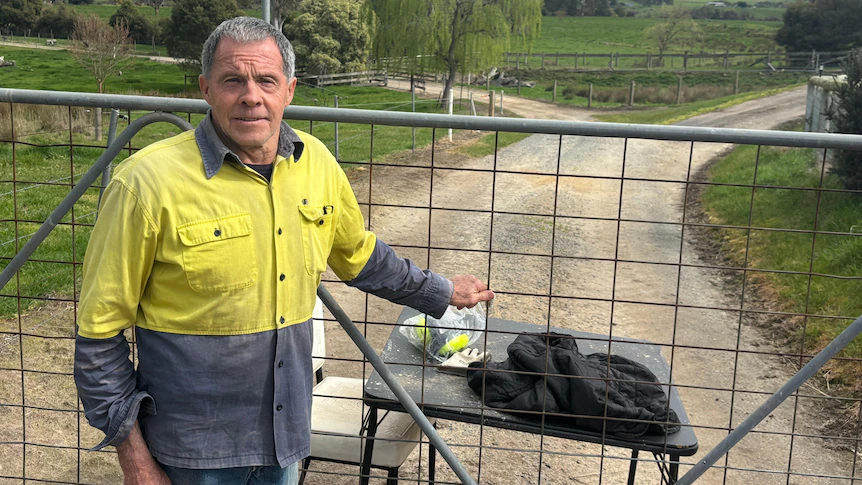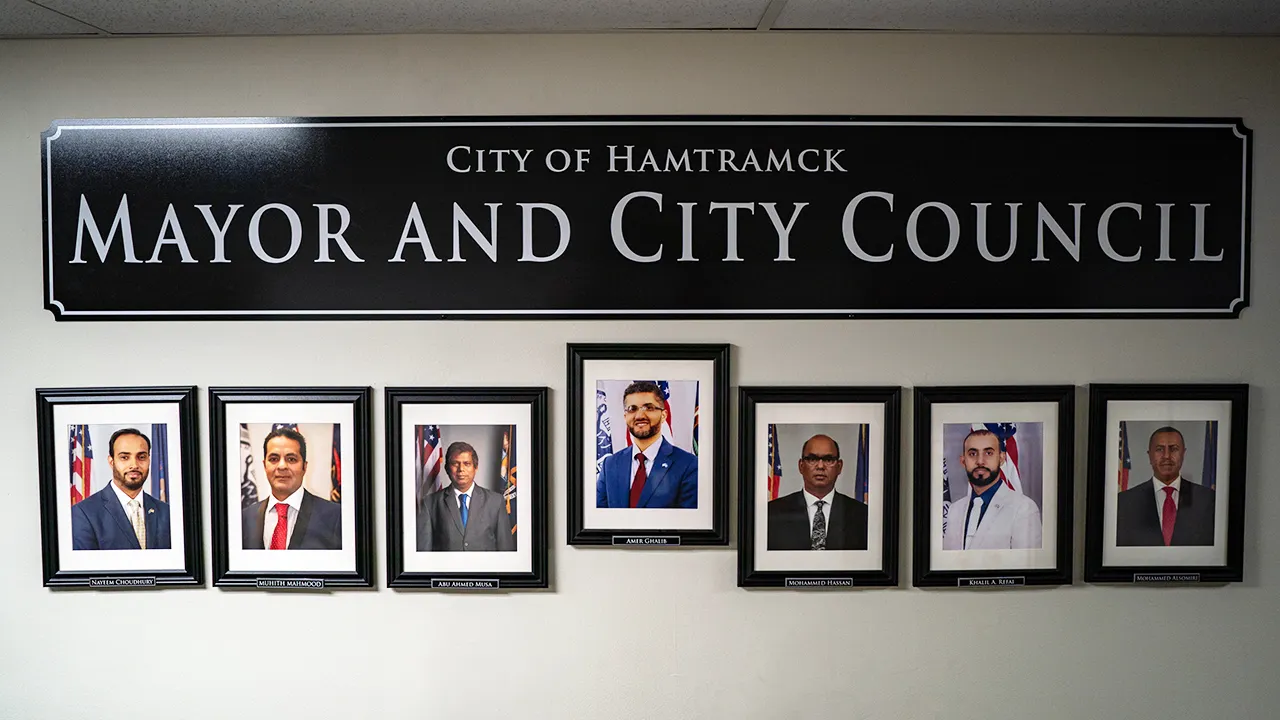By Danielle Pope,Jack Colantuono
Copyright abc

A farmer in Victoria’s east has chained his front gate and blocked his driveway to stop power company workers from entering his property to work on high-voltage transmission lines.
Farmer Trevor Hasthorpe has had transmission lines and towers on his property at Tanjil South, near Moe, for more than 50 years, but said he did not want AusNet Services accessing his land without permission.
He said previous visits had occurred during wetter parts of the year and that vehicles had “churned up” his paddock and flattened his hay.
The placement of transmission lines on farms is controversial in Victoria and farmers in the state’s west furious over a planned expansion of powerlines.
Mr Hasthorpe’s said the timing of AusNet’s maintenance made it difficult for him to work.
“AusNet [should] come at a more appropriate time, not when it’s really wet,” he said.
Mr Hasthorpe was also upset when AusNet cut trees on his property because they were too close to the transmission lines.
He said the trees helped protect his cattle from the elements and had been cut too short.
Police attended Mr Hasthorpe’s property last week when he blocked AusNet workers from entering to do more pruning.
The workers and police hope to reach an agreement with Mr Hasthorpe in the near future.
Access rights
AusNet said transmission and distribution companies could legally access private and public land to do maintenance.
An AusNet spokesperson said the maintenance on Mr Hasthorpe’s farm included vegetation clearance and pole inspections.
“This work is essential for the safe maintenance and operation of the existing electricity distribution and transmission networks, and is part of AusNet’s bushfire mitigation works that it is required to take ahead of the bushfire season,” the spokesperson said.
“AusNet had contacted the landholder in advance multiple times, both in writing and in person, with clear explanations of the planned works and their importance.
Victorian Farmers Federation president Brett Hosking agreed AusNet had the right to maintain transmission lines on farms, but said it should be done equitably.
“They have a responsibility to do that, but there’s ways in which they can do that — it has to be fair and reasonable both ways,” he said.
Mr Hosking said transmission workers needed to ensure they did not disturb livestock while undergoing works on farms.
“You don’t want strange vehicles driving around, disturbing and putting them under stress,” he said.
VicGrid chief executive Alistair Parker said the state government’s preference was for energy companies to seek voluntary access from landholders through respectful engagement.
“The right to access land already exists for transmission infrastructure, as it does for other major public infrastructure like roads and telecommunications,” he said.
Tough transition
Victoria University Energy Policy Centre director Bruce Mountain said farmers living with existing transmission infrastructure were “increasingly agitated” about the effect it was having on them.
He said disputes such as Mr Hasthorpe’s would make it difficult for the government to deal with farmers in the state’s west, who would have new transmission builds crossing their land as part of VNI West.
“I suspect that this particular maintenance-related issue in Gippsland is actually reflecting a change in Zeitgeist and sentiment of landholders to the transmission authorities and the government,” Professor Mountain said.
“The government’s drawing attention to the relationship between transmission, the government and landholders.
“I think, largely as the consequences of some pretty tough-handed treatment of those farmers … the government is making the transition harder.”
He said landowners needed to be convinced of the public interest of transmission projects and have their concerns addressed.
“If they can’t win that argument, I think farmers will feel justified in their outrage,” Professor Mountain said.



